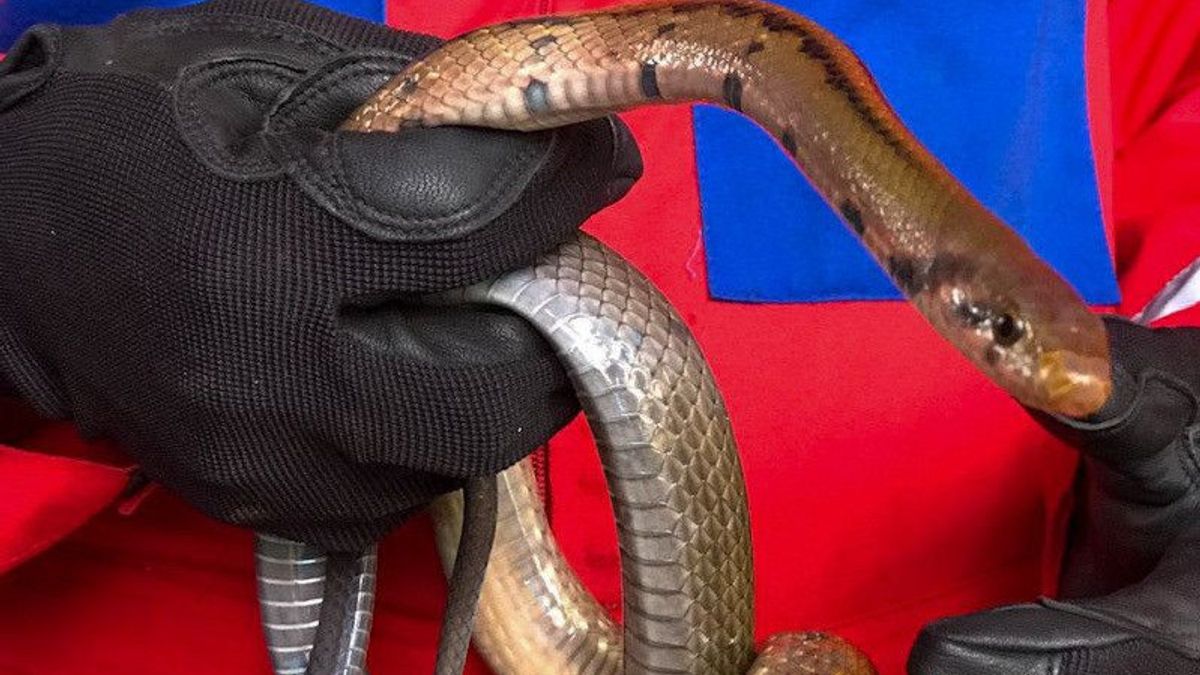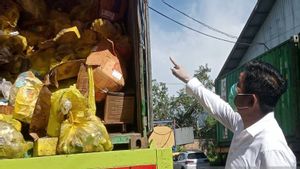YOGYAKARTA - The Fire and Rescue Service stated that the case of evacuating wild animals that entered people's homes in the city of Yogyakarta at the beginning of the rainy season was increasingly diverse. Not only snakes, officers also evacuated bidawaks to civets.
"The last cases we handled were two civets entering the residents' houses," said Yogyakarta City Fire and Rescue Service Head Octo Noor Arafat in Yogyakarta, Antara, Sunday, October 23.
As of September 2022, the Fire and Rescue Service has evacuated 177 wasp nests, 55 evacuations of snakes and biawaks, 42 rescues of cats and dogs, 56 releases of rings, and handling 42 cases of fires within the city of Yogyakarta and 51 times helping to deal with fires outside the city of Yogyakarta.
As for October, officers have evacuated at least 10 snakes, one biawak, and two civets.
According to him, the evacuation of wild civets who entered the residents' houses was the first time this was carried out and the case was quite odd because there were civets in urban areas that were densely populated.
“ It is possible that the incident had something to do with the environmental conditions where the civet lived. It could be because of floods and other conditions as a result of extreme weather and many ecosystems were damaged so that wild civets entered the house,” he said.
Previously, wild animals that were often evacuated by Yogyakarta City Fire and Rescue Service officers because they entered people's homes were snakes and biawaks.
“ In the rainy season, the most frequent evacuation of wild animals is snakes entering people's homes. Most are snakes that are not venomous but the public must remain vigilant, he said.
As for the biawak, he said, it is possible because the biawak is a snake egg predator. “ Rainy season is the time for the snakes to lay eggs. Hence, the biawak appears that eat the eggs,” he said.
The settlement of residents who are on the banks of the river is a location that is considered quite prone to cases of wild animals entering the house. “ It could be that the wild animal, a snake, was carried away by the river from upstream when heavy rains entered residential areas,” he said.
Therefore, the Yogyakarta City Fire and Rescue Service reminded residents to keep the environment clean by ensuring that there are no shrubs around the house that may be used as snake nests, monitorlets or other wild animals.
The house is also guarded so that it is always neat and not humid and given a fragrance to prevent snakes from entering. “ So far, many people think that to prevent snakes from entering need to be given rough salt around the house. This method is ineffective. It is better to give the fragrance, ” he said.
If the community is not sure that they can evacuate wild animals safely, residents can ask for help from the Fire and Rescue Service officers who are on standby 24 hours a day.
Illegal animals that are evacuated will then be kept or given to reptile lovers or released into safe locations and far from residential areas.
In addition to evacuating snakes, biawks, and civets, officers can also help evacuate wasp nests and even evacuate detached pets such as dogs that enter a hotel in Jetis District, said October Noor Arafat.
The English, Chinese, Japanese, Arabic, and French versions are automatically generated by the AI. So there may still be inaccuracies in translating, please always see Indonesian as our main language. (system supported by DigitalSiber.id)








